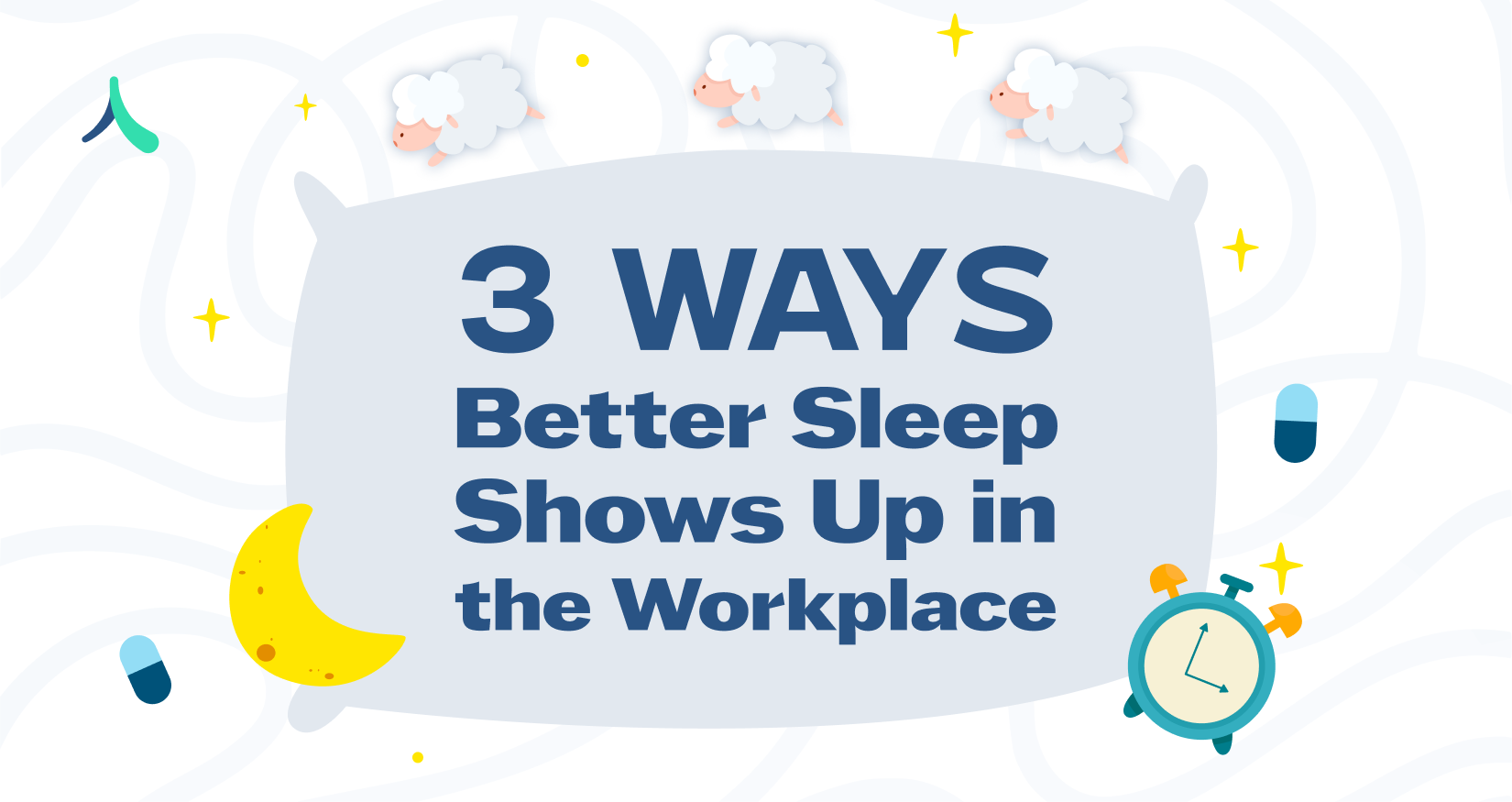
May is Better Sleep Month so we’re taking this opportunity to remind every employer why fostering a well-rested workforce is so very important. First and foremost, American adults are simply not sleeping well or sufficiently. In fact, a third of Americans describe their sleep as “fair” or “poor” and at least 70 million suffer a sleep or wakefulness disorder.
Sleep is core to achieving optimal overall health and wellbeing. It affects everything from cognition to memory to mood and motivation. Not only this, but sleep has a fundamental impact on our immune system and the risks for developing chronic diseases, including heart disease, diabetes, dementia, obesity, and certain cancers. Without optimal sleep hygiene, employees simply aren’t able to bring their best selves to work – which has strong implications for the work they do, their overall satisfaction and the success of the companies they work for.
Health coaches enable employees to set better sleep habits, prioritizing a schedule and routine that allows them to get more sleep or better quality sleep. They work closely to personalize these sleep-improving behaviors so they fit seamlessly into employees’ lifestyles and are more guaranteed to work and to last. In today’s blog, we highlight three of the many ways sleep has an impact on individuals in the workplace and where health coaches help.
Sleep impacts productivity in the workplace.
Sleep has a statistical impact on overall cognition – poor sleep affects, “memory, attention, alertness, judgment, decision-making, and overall cognitive abilities in the brain,” according to research. No matter what the job function, these abilities have an important impact on how employees are able to carry out their roles and, when not supported, could even have detrimental effects. Systematic studies have even suggested workers with sleep problems have a 1.62 times higher risk of injury than workers without sleep problems and about 13% of work injuries can be attributed to sleep problems.
Other research has shown poor sleep is correlated to decreased productivity, which can even have an impact on a company’s bottom line. For example, workers with fatigue are estimated to have cost employers $136.4 billion annually in health-related lost productivity time according to some reports. Health coaches can work closely with employees to understand what might be getting in the way of poor sleep and further, can help them conceptualize the impact sleep might have on the way they show up and perform at work. Together, employees and health coaches can develop a sleep schedule that works in the long-term and troubleshoot any roadblocks along the way, contributing to better sleep hygiene and more productivity at work.
Optimal sleep leads to fewer work-related absences.
Interestingly enough, but not at all surprising, poor sleep has been linked to higher rates of absenteeism and conversely, optimal sleep has been linked to fewer absences. Some studies have shown that individuals getting 7-8 hours of sleep per night were associated with the lowest risk of absenteeism at work. Especially since sleep can have an impact on the immune system and even contribute to chronic health conditions, it’s no surprise employees experiencing poor sleep or even sleep disorders might miss work more frequently. What’s more, the CDC has estimated that productivity losses due to absenteeism could cost U.S. employers a whopping $225.8 billion annually. Health coaches can introduce positive behavior change that catalyzes better sleep, reducing the number of employee absences in the long-term.
Sleep and mental health are deeply connected.
In addition to having an impact on physical health and wellbeing, sleep deprivation or poor sleep habits can have serious implications on mental health. Studies have shown sleep deficiencies are linked to depression, suicide and risk taking behaviors which in turn impacts employees’ ability to function at work. Not only this, but recent studies have also suggested poor sleep can decrease or numb positive emotions, which could impact the ways employees feel towards their work, colleagues and even their self-esteem at work. Health coaches provide non-clinical supplemental mental health support to ameliorate the effects sleep might have on mood and mental health, while also encouraging better sleep habits in the long-term.
At YourCoach, we’re proud to bring health coaching to employees so they can achieve more optimal sleep and become healthier, happier and more productive. Through our ongoing partnerships we deliver best-in-class health coaching services as non-clinical supplemental mental health support and inspire real behavior change that impacts sleep habits in the short- and long-term. If you’re an organization who’s interested in learning more about how partnering with us can support a healthier workforce, send us a note to team@yourcoach.health.


